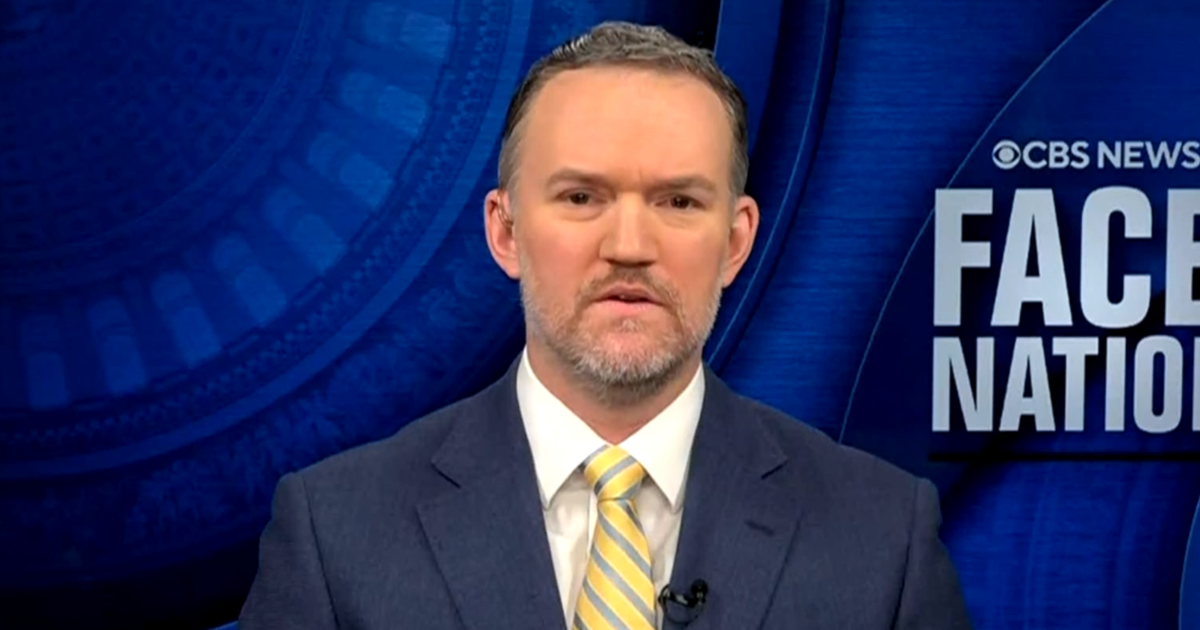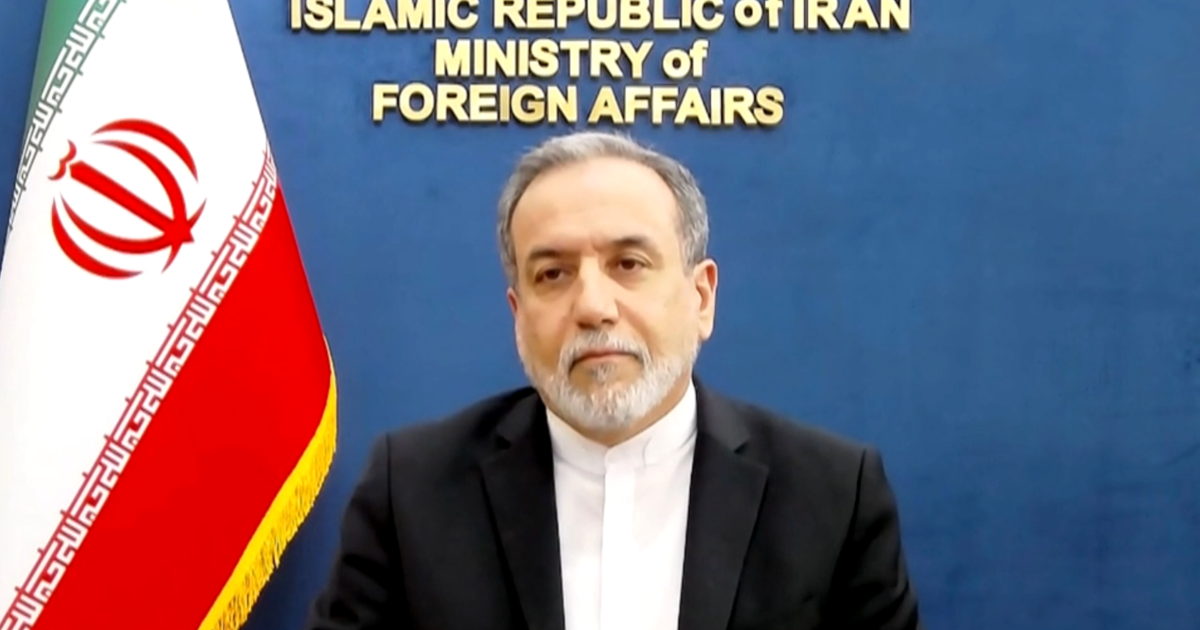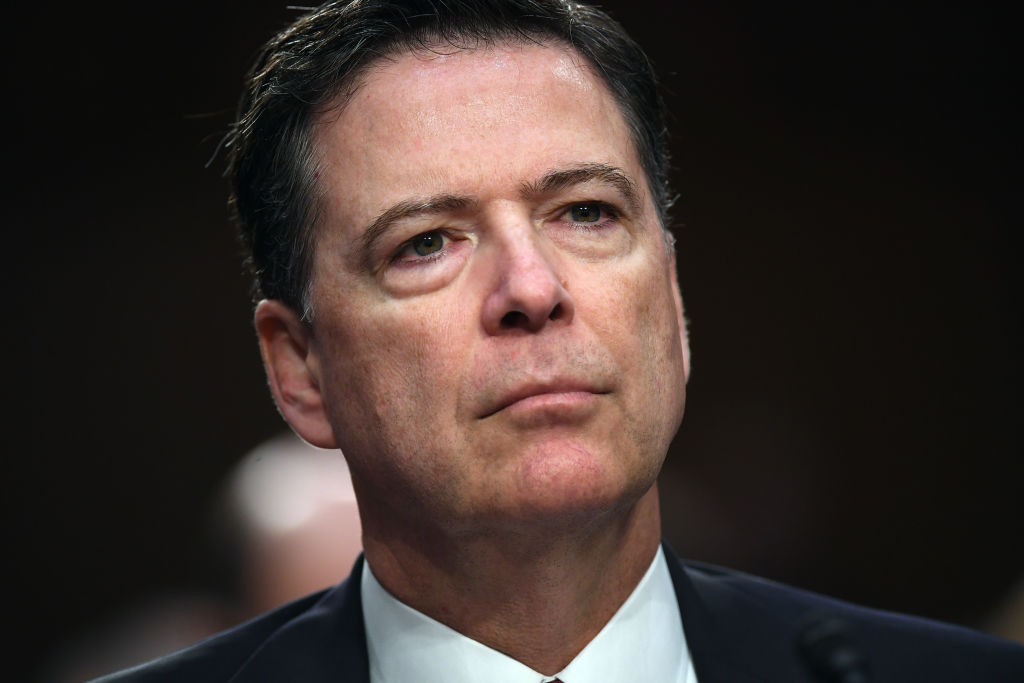Transcript: Sen. Lindsey Graham on "Face the Nation," February 17, 2019
The following is a transcript of the interview with Republican Sen. Lindsey Graham that aired Sunday, Feb. 17, 2019, on "Face the Nation."
MARGARET BRENNAN: Good morning and welcome to "Face the Nation." We have a lot to get to today and we're going to begin with Senate Judiciary Committee Chairman Lindsey Graham. He joins us from Germany where he is attending the Munich Security Conference. Sir I want to get right to this conversation my colleague Scott Pelley had on "60 Minutes" with former acting FBI Director Andrew McCabe where he described a conversation about the 25th Amendment-- the mechanism through which to push the president out of office- And he said it was brought up to him by the Deputy Attorney General Rod Rosenstein.
MCCABE: DISCUSSION OF THE 25TH AMENDMENT WAS WAS, WAS SIMPLY ROD RAISED THE ISSUE AND DISCUSSED IT WITH ME IN THE CONTEXT OF THINKING ABOUT HOW MANY OTHER CABINET OFFICIALS MIGHT SUPPORT SUCH AN EFFORT.
PELLEY: ROSENSTEIN WAS ACTUALLY OPENLY TALKING ABOUT WHETHER THERE WAS A MAJORITY OF THE CABINET WHO WOULD VOTE TO REMOVE THE PRESIDENT.
MCCABE: THAT'S CORRECT. COUNTING VOTES OR POSSIBLE VOTES.
PELLEY: WHAT SEEMED TO BE COURSING THROUGH THE MIND OF THE DEPUTY ATTORNEY GENERAL WAS GETTING RID OF THE PRESIDENT OF THE UNITED STATES.
MCCABE: WELL--
PELLEY: --ONE WAY OR ANOTHER.
MCCABE: I CAN'T CONFIRM THAT. BUT WHAT I CAN SAY IS THE DEPUTY ATTORNEY GENERAL WAS DEFINITELY VERY CONCERNED ABOUT THE PRESIDENT, ABOUT HIS CAPACITY AND ABOUT HIS INTENT AT THAT POINT IN TIME.
PELLEY: HOW DID HE BRING UP THE IDEA OF THE 25TH AMENDMENT TO YOU?
MCCABE: HONESTLY I DON'T REMEMBER. HE-- IT WAS JUST ANOTHER KIND OF TOPIC THAT HE JUMPED TO IN THE MIDST OF- OF- OF A WIDE RANGING CONVERSATION.
PELLEY: SERIOUSLY? (LAUGH) JUST--
MCCABE: --YEAH--
PELLEY: --ANOTHER TOPIC?
MCCABE: YEAH.
MARGARET BRENNAN: Senator that's a tremendous allegation to make. Have you ever asked Rod Rosenstein if in fact that conversation happened?
SENATOR LINDSEY GRAHAM: While he's publicly denied it, but, the whole point of Congress existing is to provide oversight of the executive branch. So through good reporting by "60 Minutes," there's an allegation by the acting FBI director at the time that the deputy attorney general was basically trying to do an administrative coup, take the president down to the twenty fifth amendment process. The deputy attorney general denies it. So I promise your viewers the following; that we will have a hearing about who's telling the truth, what actually happened. Mr. McCabe, you remember, was dismissed from the FBI for leaking information to the press. So you've got to remember the source here.
MARGARET BRENNAN: There has been some parsing though of whether these were extended discussions versus conversations about the 25th Amendment. Do you know whether those conversations have taken place?
SEN. GRAHAM: No but I think everybody in the country needs to know if it happened. It's stunning to me that one of the chief law enforcement officers of the land- the acting head of the FBI- would go on national television and say, oh by the way I remember a conversation with the deputy attorney general about trying to find if we could replace the president under the 25th Amendment. We're a democracy. People enforce the law- can't take it into their own hands. And was this an attempted bureaucratic coup? I don't know. I don't know who's telling the truth. I know Rosenstein vehemently denied it but we're going to get to the bottom of it. I do know there was a lot of monkey business about FISA warrants being issued against Carter Page, about dossiers coming from Russia that were unverified. Mr. Mueller is going to look at the Trump campaign as he should to see if they violated any laws during the 2016 election. And I'm going to do everything I can to get to the bottom of the Department of Justice FBI behavior toward President Trump and his campaign.
MARGARET BRENNAN: But- but by even framing it as you just did there Senator, are you concerned that by investigating the investigators you are adding to some damage of the credibility of the FBI?
SEN. GRAHAM: Quite the opposite. If it happened we need to clean it up. The FBI has gotten off track in the past. It's one of the greatest organizations in the world. The Hoover years have proven to be pretty dark periods for the FBI. The latter part of the Hoover days where politicians were being blackmailed. There is no organization beyond scrutiny. There is no organization that can't withstand scrutiny. And the FBI will come out stronger. But we've got to get to the bottom of it. What are people to think after they watch "60 Minutes" when they hear this accusation by the acting deputy- acting FBI director that the deputy attorney general encouraged him to try to find ways to count votes to replace the president? That can't go unaddressed. And it will be addressed. That's what oversight is all about.
MARGARET BRENNAN: Will you subpoena McCabe and Rosenstein to appear?
SEN. GRAHAM: How can I not, if that's what it takes? I mean you're doing your job. The first amendment allows you to ask questions of the most powerful people in the country. I know he's selling a book, and we need to take with a grain of salt maybe what Mr. McCabe is telling us. But he went on national television and he made an accusation that floors me. You know, I can imagine if the shoe were on the other foot, this would- if we were talking about getting rid of President Clinton, it'd be front page news all over the world. Well we're going to find out what happened here and the only way I know to find out is to call the people in under oath and find out, through questioning, who's telling the truth because the underlying accusation is beyond stunning.
MARGARET BRENNAN: I want to play another clip from that interview for you.
SCOTT PELLEY: WHAT WAS IT SPECIFICALLY THAT CAUSED YOU TO LAUNCH THE COUNTERINTELLIGENCE INVESTIGATION?
ANDREW MCCABE: IT'S MANY OF THOSE SAME CONCERNS THAT CAUSED US TO BE CONCERNED ABOUT A NATIONAL SECURITY THREAT. AND THE IDEA IS IF THE PRESIDENT COMMITTED OBSTRUCTION OF JUSTICE, FIRED THE DIRECTOR OF THE- OF THE FBI TO NEGATIVELY IMPACT, OR TO SHUT DOWN OUR INVESTIGATION OF RUSSIA'S MALIGN ACTIVITY, AND POSSIBLY IN SUPPORT OF HIS CAMPAIGN, AS A COUNTERINTELLIGENCE INVESTIGATOR YOU HAVE TO ASK YOURSELF, WHY WOULD A PRESIDENT OF THE UNITED STATES DO THAT? SO ALL THOSE SAME SORTS OF FACTS CAUSE US TO WONDER, IS THERE AN INAPPROPRIATE RELATIONSHIP, A CONNECTION BETWEEN THIS PRESIDENT AND OUR MOST FEARSOME ENEMY, THE GOVERNMENT OF RUSSIA?
MARGARET BRENNAN: Senator, you voiced support for the Muller probe in the past. Listening to—
SEN. GRAHAM: Right.
MARGARET BRENNAN: What McCabe just described there- a troubling pattern of behavior that he as a- a lifetime investigator saw as a troubling fact pattern, led him to open a counterintelligence investigation into the president of the United States. Can you understand why he came to that conclusion?
SEN. GRAHAM: I can understand that the American people will get an answer to the question for Mr. Mueller. What I can't understand is why Mr. McCabe would meet with Page and Strzok to discuss their hatred for president- candidate Trump, talking about taking an insurance policy out in case the election went different than they want. So Mueller will tell us about what Trump did or didn't do. I'm going to tell the country about McCabe and the people at the Department of Justice and how they behaved. Did they take the law into their own hands? Did they abuse the FISA warrant process because they had a political agenda? Did their hatred of Trump go so far, that they abandoned their role of being law enforcement agents and become advocates for a political cause? We're going to get to the bottom of that.
MARGARET BRENNAN: But you recognize there that McCabe is laying out the- the grounds of what he saw as an obstruction of justice attempt.
SEN. GRAHAM: Mr. Mueller will look at that but I think McCabe, Strzok and Page had a political bias, a political agenda. And I find it odd that the dossier that we use to get the warrant against Carter Page, prepared by a foreign agent, paid for by the Democratic Party that they knew to be unreliable, was used on four separate occasions to get a warrant. And I want to know why Comey told the president, "Here's the dossier. We've got it. We can't verify any of it. We want you to know about it." And that same document was used by the FBI and the Department of Justice under oath to tell the court, "This is reliable information, gives us a warrant based on this document. I hope your viewers understand that the rule of law works both ways. Somebody has got to watch those who watch us and I intend to watch what McCabe and- and his crowd did during the 2016 election.
MARGARET BRENNAN: The president just declared a national emergency in regard to getting the funds for his border wall. In terms of getting those funds though through this emergency action and there's about three point six billion of it that could come from military construction efforts, including construction of a middle school in Kentucky, housing for military families, improvements for bases like Camp Pendleton and Hanscom Air Force Base. Aren't you concerned that some of these projects that were part of legislation that you helped approve and Congress are now going to possibly be cut out?
SEN. GRAHAM: Well the president will have to make a decision where to get the money. Let's just say for a moment that he took some money out of the military construction budget. I would say it's better for the middle school kids in Kentucky to have a secure border. We'll get them the school they need. But right now we've got a national emergency on our hands. Opioid addiction is going through the roof in this country. Thousands of Americans died last year and dying this year because we can't control the flow of drugs into this country and all of his coming across the border--
MARGARET BRENNAN: Through ports of entry according to the--
SEN. GRAHAM: So the dangers presented by a broken border to me.
MARGARET BRENNAN: --to Customs and Border patrol though. But--
SEN. GRAHAM: Both. It's both. It's not just one. For every one we get, God knows how much we miss.
MARGARET BRENNAN: Do- don't you think Congress has ceded too much power to the executive branch? Do you think that you need to more sharply define what constitutes a national emergency so that future presidents can't interpret it as they like?
SEN. GRAHAM: Good question. I think that every member of Congress has watched three presidents send troops to the border. Bush, Obama, now Trump. Not one of us have complained about deploying forces to the border to secure the border. It's pretty hard for me to understand the legal difference between sending troops and having them build a barrier. What disappoints me is on President Obama's watch as a Republican, I voted for a 44 billion dollar border security package, 9 billion of which included barriers. 2006 all of us voted for the Secure Fre-Fence Act. And we're talking about steel barriers not a concrete wall. And unfortunately when it comes to Trump, the Congress is locked down and will not give him what we've given past presidents. So unfortunately, he's got to do it on his own and I support his decision to go that route.
MARGARET BRENNAN: Well perhaps in the future we can talk about sharpening what constitutes an emergency. But before I let you go, you made a pitch from the stage--
SEN. GRAHAM: Right.
MARGARET BRENNAN: --there at Munich for foreign troops to be committed to Syria alongside American forces. How many U.S. forces are needed to stay there and has President Trump actually made that commitment to you?
SEN. GRAHAM: Well that's- thank you for asking Margaret. The Islamic State in Iraq and Syria has been destroyed. It has been defeated. All the work is not yet done. Remnants of ISIS are lethal. We need a follow own presence post caliphate destruction. The good news we can do this with a fraction of American forces we've had in Syria in the past. The real good news is Europeans are willing to contribute because their cities have been attacked from Syria. The caliphate in Syria--
MARGARET BRENNAN: How many U.S. troops?
SEN. GRAHAM:--has caused thousands of deaths inside of Europe. I think just a fraction, a couple of hundred, compared to twenty seven hundred would be enough to get Europeans to contribute to the stabilizing force to make sure ISIS doesn't come back like it did in Iraq, to make sure that Turkey and the Kurds don't go to war, to keep them apart, and to make sure Iran doesn't come in and take over when we leave. So I've never felt better about the outcome in Syria with a small contingent of Americans. A lot of Europeans will come in and help fill in the gap, a very small down payment to secure ISIS never comes back. We've gone from thousands of troops in Iraq and Syria down now to a couple of hundred in Syria. Congratulations, Mr. President. The job is not yet done but we've done a hell of a job destroying the caliphate.
MARGARET BRENNAN: Senator Graham, thank you.



